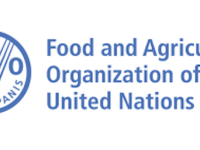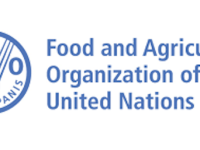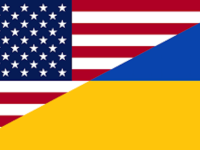Business
FAO CALLED ON G7 TO HELP ANTICIPATE FUTURE FOOD SHORTAGE DUE TO UKRAINE’S WAR
AMID CURRENT SQUEEZES SUPPLIES

G7- 22 Logo (Source: G7)
USPA NEWS -
The head of the Food and Agriculture Organization of the United Nations (FAO) today called on G7 nations to help anticipate future food shortages, as the war in Ukraine squeezes supplies, pushes prices to record highs and threatens already vulnerable nations across Africa and Asia. “We need to actively identify ways to make up for potential future gaps in global markets, working together to foster sustainable productivity increases where possible,” Director-General Qu Dongyu told G7 Agriculture Ministers meeting in Stuttgart, Germany. Qu was invited by the German presidency of the G7 to discuss the consequences of the conflict in eastern Europe on global food security. Already in 2021, approximately 193 million people were acutely food insecure and in need of urgent assistance, up nearly 40 million people from 2020.
The head of the Food and Agriculture Organization of the United Nations (FAO) today called on G7 nations to help anticipate future food shortages, as the war in Ukraine squeezes supplies, pushes prices to record highs and threatens already vulnerable nations across Africa and Asia. “We need to actively identify ways to make up for potential future gaps in global markets, working together to foster sustainable productivity increases where possible,” Director-General Qu Dongyu told G7 Agriculture Ministers meeting in Stuttgart, Germany. Qu was invited by the German presidency of the G7 to discuss the consequences of the conflict in eastern Europe on global food security. Already in 2021, approximately 193 million people were acutely food insecure and in need of urgent assistance, up nearly 40 million people from 2020. “It is in this dramatic context that we now face the war in Ukraine,” Qu said.
RUSSIA & UKRAINE ARE IMPORTANT PLAYERS IN GLOBAL COMMODITY MARKETS----------------------------Russia and Ukraine are important players in global commodity markets, and the uncertainty surrounding the conflict has caused prices surges, particularly of wheat, maize and oilseeds, as well as fertilizers. These increases come on top of already high prices driven by robust demand and high input costs as a result of the COVID-19 pandemic. In March, the FAO Food Price Index reached its highest level (160 points) since its inception in 1990 and only dipped slightly in April.
Wheat export forecasts for both Russia and Ukraine have been revised down since the start of the war. And despite other market players such as India and the European Union boosting their offers, supply remains tight and prices will likely remain elevated in the coming months, Qu said. Countries that are heavily reliant on wheat imports include Egypt and Turkey, but also a number of Sub-saharan countries such as Congo, Eritrea, Madagascar, Namibia, Somalia and Tanzania. Meanwhile, countries that are heavily dependent on fertilizers imported from Russia include key cereal and high value commodity exporting countries like Argentina, Bangladesh and Brazil.
OFFERING SOLUTIONS
According to FAO, market transparency is crucial. That is why FAO welcomes every effort to strengthen and expand the Agricultural Market Information System (AMIS), an inter-agency platform designed to enhance food market transparency launched in 2011 by G20 Agriculture Ministers following the global food price hikes in 2007/08 and 2010. AMIS is hosted by FAO.
According to FAO, market transparency is crucial. That is why FAO welcomes every effort to strengthen and expand the Agricultural Market Information System (AMIS), an inter-agency platform designed to enhance food market transparency launched in 2011 by G20 Agriculture Ministers following the global food price hikes in 2007/08 and 2010. AMIS is hosted by FAO.
FAO has also proposed a global Food Import Financing Facility to help nations deal with rising food prices. The mechanism, which is strictly based on needs and limited to low and lower middle-income, net food-importing countries and selected beneficiaries of the International Development Association, could benefit almost 1.8 billion people in the world’s 61 most vulnerable countries. The facility has been designed to include smart conditionality to act as an automatic stabilizer for future funding. Eligible countries will commit to added investments in agriculture, thus reducing future import needs.
In his address to the G7 meeting, the FAO Director-General also called on governments to “refrain from imposing export restrictions, which can exacerbate food price increases and undermine trust in global markets.” Instead, we must “ensure that any measures taken to address the crisis do no exacerbate food insecurity and on the contrary increase resilience,” Qu said. The meeting in Stuttgart was hosted by German Agriculture Minister Cem Özdemir and saw a Guest Statement from his Ukrainian colleague, Mykola Solsky. Source: Food and Agriculture Organization (FAO).
Liability for this article lies with the author, who also holds the copyright. Editorial content from USPA may be quoted on other websites as long as the quote comprises no more than 5% of the entire text, is marked as such and the source is named (via hyperlink).








